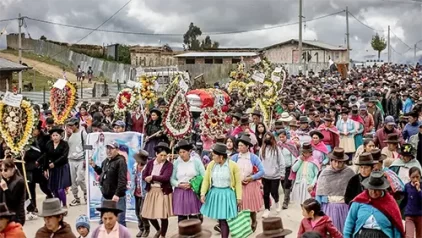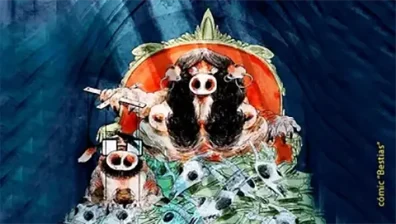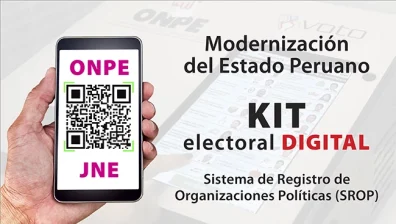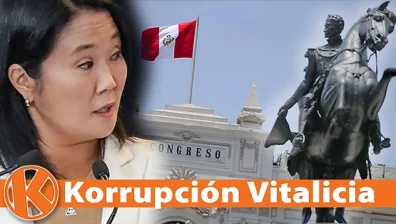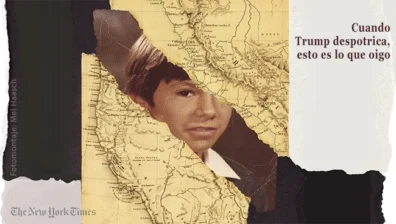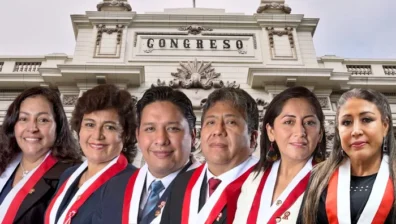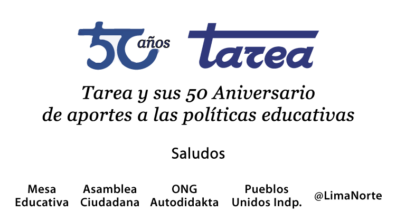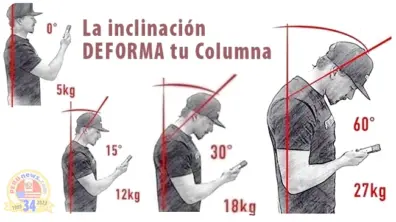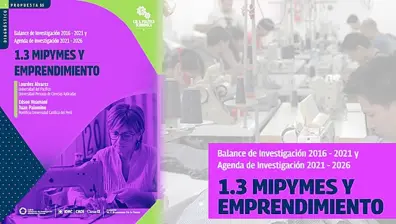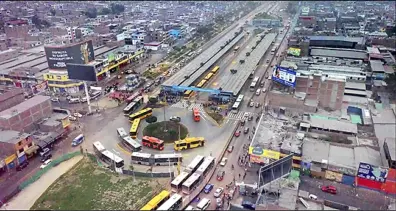Massive funeral procession held in Andahuaylas for Denilson Huaraca Vílchez who was killed in a protest on February 9. Photo: Juan Zapata / Wayka
Over the past 10 weeks of protest across the country, more than 60 people have been killed and over 1,000 injured
A group of Peruvian human rights organizations and independent lawyers, on Wednesday, February 15, filed a legal complaint against Dina Boluarte, her ministers, and police chiefs over the deaths of six people killed during protests in the Apurímac region in December 2022.
The complaint states that during the first five days of demonstrations against Boluarte’s assumption of power, which began on December 7, 2022, six people were killed, 83 were injured, and dozens were arrested and tortured at the hands of police officers.
According to a statement by the Legal Defense Institute—one of the organizations that filed the lawsuit—five of the deceased lost their lives due to firearm projectile impacts, two were adolescents, and the eldest victim was only 19 years old.
The judicial document, which was delivered to the National Prosecutor’s Office, includes audiovisual evidence, incriminating documents, and testimonies from victims.
“It is not possible to commit a massacre without the support of the highest level authorities…Not only the police officers, who were direct actors, are responsible, but also the indirect perpetrators, that were part of the chain of command,” the complaint outlined.
In addition to Boluarte, the lawsuits include the former Prime Minister Pedro Angulo, the former Defense Minister and current Prime Minister Alberto Otárola, the former Interior Minister César Cervantes, the General Commander of the Police Raúl Alfaro, and two others police commanders.
This is the second legal complaint against the Boluarte government. The first is an ongoing investigation by the Prosecutor’s Office into the death of eight protesters, massacred in the Ayacucho region, on December 15.
In the past 10 weeks of protest in Peru, more than 60 people have been killed and over 1,000 injured.
On December 7, 2022, democratically elected President Pedro Castillo was removed from office in a legislative coup. Since then, hundreds of thousands of people, mainly from the marginalized countryside of Peru, have been mobilizing in different parts of the country to demand radical political change. Their demands include Boluarte’s resignation, the closure of congress, new general elections this year, and a referendum on a constituent assembly to draft a new constitution.
On Monday, February 13, the Board of Directors of the National Assembly of Regional Governors (ANGR) and the Association of National Universities of Peru (AUNAP) met with Boluarte to demand a democratic solution to the political, social, and economic crisis facing the country. After the meeting, they issued a document titled ‘Manifesto for Peru’, in which they pointed out that the political crisis is unsustainable and the president must demand the advancement of elections to 2023 from Congress or resign from her position.
In light of the increased pressure, on Wednesday, Boluarte began a round of dialogue with political parties to address the situation. She held meetings with the president of Somos Peru, Patricia Li, and Keiko Fujimori, the defeated far-right politician in the 2021 elections and daughter of former dictator, Alberto Fujimori.
The Peruvian Congress has already rejected two bills that called for elections to be held in 2023. It is scheduled to debate and vote on at least two more bills on early elections in February. One has been presented by Boluarte and proposes elections on the second Sunday of October 2023. The other one calls for elections in April 2024.
While the de-facto government discussed the advancement of elections with its allies and other political leaders, Indigenous and peasant communities, social organizations, students’ associations, and trade unions across different sectors have called for a national strike on December 18 and 19.
Compartir esto::
- Haz clic para compartir en Twitter (Se abre en una ventana nueva)
- Haz clic para compartir en Facebook (Se abre en una ventana nueva)
- Haz clic para compartir en LinkedIn (Se abre en una ventana nueva)
- Haz clic para compartir en WhatsApp (Se abre en una ventana nueva)
- Haz clic para compartir en Pinterest (Se abre en una ventana nueva)
- Haz clic para enviar un enlace por correo electrónico a un amigo (Se abre en una ventana nueva)

